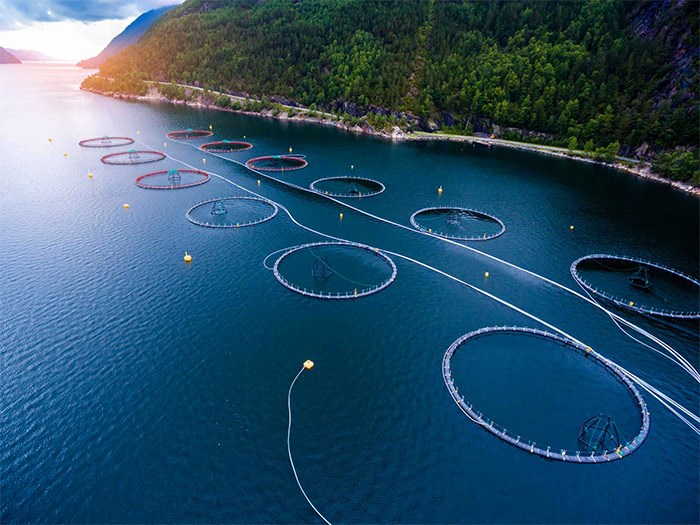The Pacific Salmon Foundation released a statement today that is sure to raise some eyebrows, and which will likely help declining salmon populations.
The organization has long been a neutral voice in the sometimes-loud debate about farmed salmon in British Columbia (disclosure: as a fisherman and conservationist I've done paid consulting and volunteer work for the PSF over the years). In 2013 they initiated a study in partnership with Genome BC and the DFO called the Strategic Salmon Health Initiative.
The aim was to study to see if there was a link between farmed salmon and disease, and this week they've released a study that offers definitive proof that net-pen salmon farms are harming our wild fish.
The release from the foundation is below, stating their new position on salmon farms in B.C..
It's a bit of a welcome departure for a group that is known more for its funding of streamkeeper groups than for its advocacy. An email sent out mentioned that they "call on all governments, industry leaders and stakeholders to put wild Pacific salmon first!".
This is excellent news for salmon populations and has fishermen (like me) cheering.
 Photo courtesy PSF
Photo courtesy PSF
FOR IMMEDIATE RELEASE
May 9th, 2018
The Pacific Salmon Foundation Board of Directors today released the following position on aquaculture in British Columbia:
The Pacific Salmon Foundation (PSF) believes that British Columbia and Canada must put wild Pacific salmon first and that a move to closed-containment salmon aquaculture is recommended. We are taking this position now based on the combination of the information in the recent report of the Ministerial Advisory Committee on Finfish Aquaculture; the results of our own research to date; and the chronically-low abundance of most wild Pacific salmon populations today.
This transition to closed containment will take time but the removal of open net-pen farms along migratory routes of wild Pacific salmon, particularly for those stocks of greatest concern, should occur as soon as possible. During this transition, everything possible should be done to improve the assessment of the risks to wild Pacific salmon, including through the work of the Strategic Salmon Health Initiative that is being done in partnership with PSF, Department of Fisheries and Oceans Canada, and Genome BC.
PSF supports the report of the Ministerial Advisory Committee on Finfish Aquaculture and is prepared to assist the provincial and federal government in the move to closed-containment aquaculture and restoration of wild Pacific salmon.


